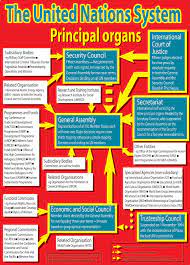In international organizations, the voting process is a complex and nuanced mechanism designed to ensure fair representation and decision-making among member states. The specific procedures can vary, but the principles are generally consistent. Typically, each member state is accorded one vote, regardless of its size or influence. However, certain organizations may employ weighted voting systems, where larger contributors or those with greater stakes have more significant voting power.

Decisions may require a simple majority, a two-thirds majority, or even a consensus, depending on the nature and importance of the issue at hand. In some instances, abstentions are allowed, but they are not considered as votes cast. Additionally, some organizations may permit member states to delegate their voting rights to regional blocs or alliances, further complicating the process.
International organizations strive to balance the interests of diverse nations, fostering cooperation and avoiding dominance by any single member. The aim is to create an inclusive and representative decision-making framework that reflects the global community's collective needs and aspirations.
Read also: What are the challenges in international diplomacy